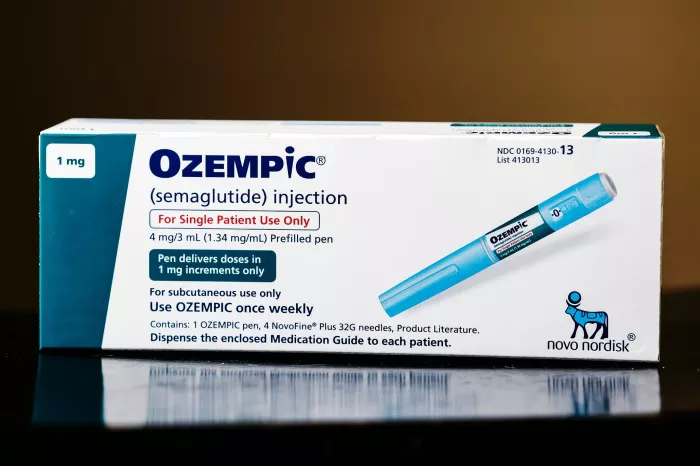An itchy throat can be a bothersome and common ailment that many individuals experience. The sensation of irritation, often accompanied by a tickling or scratchy feeling, can disrupt daily activities and impact overall well-being. In this comprehensive guide, we delve into the intricacies of dealing with an itchy throat, offering insights into the causes, symptoms, and a range of effective strategies to alleviate discomfort and promote throat health.
Understanding Itchy Throat
Before delving into remedies, it’s essential to understand the various causes and culprits behind an itchy throat. Common triggers include viral or bacterial infections, allergies, environmental factors such as air pollution or smoke, dry air, and irritants like strong odors or chemicals. Additionally, gastroesophageal reflux disease (GERD) and postnasal drip can contribute to throat irritation. Identifying the specific cause of an itchy throat is crucial for selecting the most appropriate interventions.
Hydration
One of the simplest yet most effective ways to address an itchy throat is to stay well-hydrated. Adequate fluid intake helps keep the throat moist, reducing irritation and promoting overall throat health. Water, herbal teas, and warm broths are excellent choices. Avoiding caffeinated and alcoholic beverages, which can contribute to dehydration, is advisable. Incorporating hydrating foods such as fruits and vegetables with high water content further supports the body’s natural defense against throat discomfort.
Gargling with Saltwater
Gargling with saltwater is a time-tested home remedy that can provide relief for an itchy throat. The saline solution helps soothe the irritation, reduce inflammation, and create an environment less conducive to the growth of microbes. To prepare a saltwater gargle, mix a teaspoon of salt in a glass of warm water. Gargle the solution for about 30 seconds before spitting it out. This simple practice can be repeated multiple times throughout the day for optimal results.
Lozenges and Throat Sprays
Over-the-counter lozenges and throat sprays can provide targeted relief for an itchy throat. Lozenges containing menthol or honey can help soothe irritation, while throat sprays often contain ingredients such as benzocaine or phenol, providing a numbing effect. It’s essential to follow the recommended usage guidelines and choose products that align with individual preferences and sensitivities. These convenient options offer on-the-go relief for those experiencing persistent throat discomfort.
Humidifying the Air
Dry air can exacerbate throat irritation, especially in indoor environments with low humidity levels. Using a humidifier can help add moisture to the air, creating a throat-friendly environment. Humidifiers are particularly beneficial during colder months when indoor heating systems can contribute to dry air. Ensuring proper maintenance of the humidifier and using distilled water can prevent the growth of mold or bacteria, enhancing its effectiveness in alleviating an itchy throat.
Identifying and Managing Allergies
Allergies can be a significant contributor to an itchy throat. Identifying and managing allergens can play a crucial role in preventing recurring irritation. Individuals with known allergies should take steps to minimize exposure to triggers, such as pollen, pet dander, or certain foods. Over-the-counter antihistamines may be recommended by healthcare professionals to manage allergy symptoms and alleviate throat discomfort. Seeking allergy testing can provide valuable insights into specific triggers, guiding targeted interventions.
Warm Tea with Honey
Warm tea with honey is a comforting and natural remedy for an itchy throat. Herbal teas such as chamomile or peppermint can have soothing properties, while honey offers antibacterial and anti-inflammatory benefits. The warmth of the tea can provide immediate relief, and the addition of honey not only enhances flavor but also contributes to throat healing. It’s essential to allow the tea to cool slightly before sipping to avoid further irritation.
Steam Inhalation
Steam inhalation is a therapeutic practice that can ease throat discomfort and relieve congestion. Inhaling warm, moist air helps hydrate the throat, reduce inflammation, and soothe irritated tissues. This can be achieved by inhaling steam from a bowl of hot water or taking a warm shower. Adding a few drops of eucalyptus oil to the steam can enhance its benefits. Individuals should exercise caution to avoid burns and ensure a safe distance from the source of steam.
Resting the Voice
Resting the voice is a fundamental aspect of managing an itchy throat, especially when the discomfort is accompanied by hoarseness or vocal strain. Speaking loudly or continuously can exacerbate irritation. Individuals experiencing throat symptoms should aim to minimize vocal strain, avoid whispering, and give the vocal cords adequate time to heal. Communicating through written messages or using voice-to-text applications can be helpful during periods of voice rest.
Over-the-Counter Medications
For individuals with persistent or severe throat discomfort, over-the-counter medications can provide targeted relief. Non-prescription pain relievers such as acetaminophen or nonsteroidal anti-inflammatory drugs (NSAIDs) may help alleviate pain and reduce inflammation. Cough suppressants or expectorants can be considered based on specific symptoms. It’s crucial to follow recommended dosages and consult with a healthcare professional if symptoms persist or worsen.
When to Seek Medical Attention
While many cases of an itchy throat can be managed at home, certain warning signs warrant medical attention. Persistent or worsening symptoms, difficulty swallowing, severe pain, or the presence of additional symptoms such as fever or rash may indicate an underlying condition that requires evaluation by a healthcare professional. Timely medical attention can help diagnose and address any potential issues contributing to throat discomfort.
Conclusion
In conclusion, addressing an itchy throat involves a combination of understanding the underlying causes, implementing effective remedies, and recognizing when professional medical attention is necessary. By incorporating hydration, saltwater gargles, lozenges, and other practical strategies, individuals can empower themselves to manage and alleviate throat discomfort. Whether opting for time-tested home remedies or seeking guidance from healthcare professionals, the goal is to foster throat health, minimize irritation, and restore overall well-being. In the journey to soothe an itchy throat, knowledge, and proactive self-care are powerful allies.
[inline_related_posts title=”You Might Be Interested In” title_align=”left” style=”list” number=”6″ align=”none” ids=”3237,3233,3158″ by=”categories” orderby=”rand” order=”DESC” hide_thumb=”no” thumb_right=”no” views=”no” date=”yes” grid_columns=”2″ post_type=”” tax=””]































